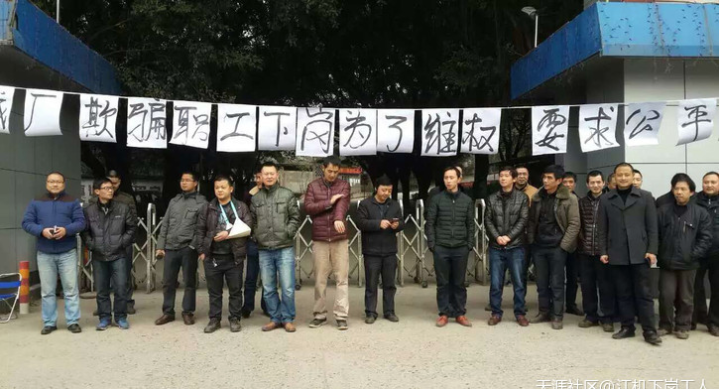At a time when some senior government officials are advocating reform of the Labour Contract Law so as to make life even easier for business owners, China’s factory workers are fighting a rear-guard action to ensure that their basic labour rights are protected and enforced.
Overall, the number of strikes and worker protests in China has dropped significantly from its pre-Lunar New Year peak, but labour disputes in the manufacturing sector are on the rise again as factories continue to close down or relocate and workers are laid off. Much of the unrest has been concentrated in the Pearl River and Yangtze River deltas, with a considerable number of large-scale incidents at foreign-owned and joint venture firms.
In the two cases outlined below, for example, employees demanded that their social insurance contributions be paid in full and that the employer adhere to legal provisions related to the use of agency labour.
Thousands of workers strike over relocation and unpaid benefits at Taiwanese factory

Workers at Taiwanese-owned Ever-Splendor Electronics in Shenzhen went on strike for three days in early March over factory relocation plans and years of underpaid social security and housing fund contributions.
The company had already begun to move equipment to a new factory location in nearby Huizhou when about 2,000 workers gathered for a march to the city government building. The protestors were stopped at the factory gate by hundreds of riot police and several workers were beaten and arrested.
Ever-Splendor employees, including some who had worked at the company for 15 or 20 years, said the company had made social insurance contributions at below the legal rate. Workers also complained that the company had refused to sign permanent employment contracts. Following the strike action, the company which produces coffee pots, toasters and other household electronics primarily for western consumers, released a statement promising to pay compensation as well as social security arrears.

Hundreds of workers at the Shanghai plant of Japanese precision engineering company Namiki went out on strike on 29 March demanding an end to their status as agency workers and to sign formal contracts with the company, as stipulated in China’s revised Labour Contract Law, which went into effect in 2013.
The strike was triggered when several workers were forced to sign new contracts, relegating them to part-time worker status. Workers also pointed out that the company had exceeded the two year deadline (set by new regulations in March 2014) for reducing the number of agency workers in any one enterprise to less than ten percent of the total workforce.
On the second day of the strike, several dozen police faced off against the workers and some strikers were arrested. The company then issued a statement threatening to dismiss striking workers and saying those who disagreed with its hiring practices should pursue their disputes through legal channels.
For more of the same see, China Labour Bulletin










